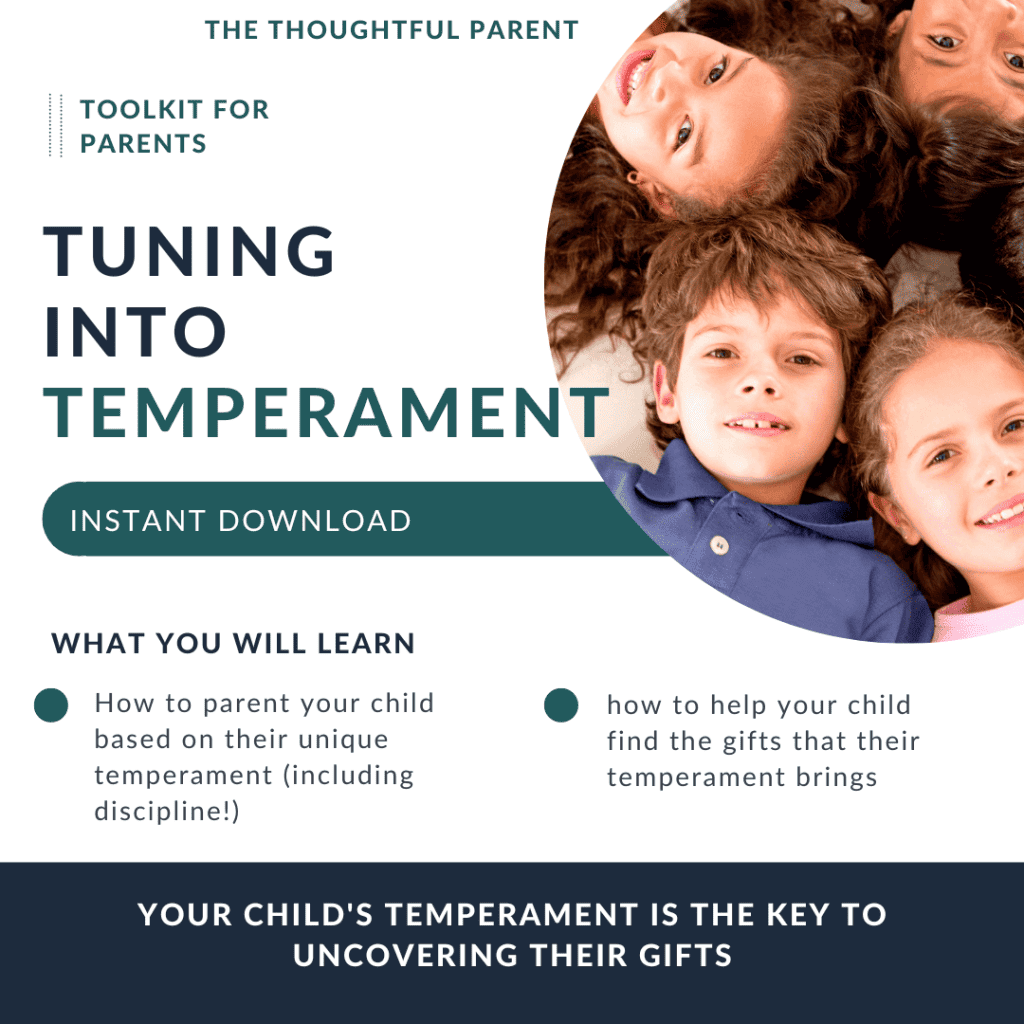Summary: People often talk about “parenting goals” but what does that really mean? A few thoughts about how finding a ‘flow state’ of parenting might be the best parenting goal for which to strive.
Have you heard the term “flow state“? Usually it refers to those moments of creative energy when you lose yourself in the moment of doing something that is both challenging and energizing. You may have experienced this in sports, while working on a project or even while cooking. For me as a writer, getting into flow state is like where all the magic happens — when the ideas flow easily.
While I don’t think that we can get into that exact same flow state in parenting, I do think we can get moments where parenting feels satisfying and even gratifying. What if the parenting equivalent of a flow state is one of the best parenting goals?

What is a “flow state” and can it apply to parenting?
The question is: how do we get there? I was reading an article about flow the other day and the expert they were interviewing described flow as a state that combines “expertise plus a release of control.”
Flow = expertise + release of control
It’s pretty interesting because to get into flow with something like writing, you would have to have a certain amount of expertise in that skill. Plus, you have to release a certain amount of control. So what does that really mean?
It means sort of giving yourself over to the moment and not trying to edit yourself or limit yourself in this creative endeavor that yohttps://thoughtfulparent.com/childrens-temperamentu’re doing.

Releasing control in our parenting journey
This struck me as an interesting dynamic if you think about how this might apply to parenting. If we want to get something like a flow state in parenting, then it requires expertise plus a release of control. Expertise in parenting is not an exact science. There’s no degree in good parenting or parenting goals. I think reading and understanding child development can help with gaining expertise of parenting — that’s why I started this blog.
Another part of this expertise piece is your intuition and understanding your own particular child — that gut feeling you have about what your child needs. Both book knowledge and intuition are all wrapped up in expertise.
What about the “release of control” part? If you’re like me, that part is a lot a lot harder than the expertise part. Releasing a little bit of control when it comes to parenting is the challenge I think many of us face. For some of us, especially in the early months or years of parenting, you may get the impression that you can control your child or control the outcome of your parenting effort. But as your child gets older, you realize how little control you really have. This is when most of us come to realize that control is not even the goal.
Related reading: The Genius Way to Make it Easier for Kids to Cooperate
We can’t control another human, even your own child. You can influence them, you can guide them, and support them, but you can’t really control them. If you’ve ever faced a two-year-old who does not want to put on their shoes or eat a certain food, you know this is true.
This “release of control” piece of the equation is really important. It helps us realize that at least one main goal is to get to this flow state of parenting — a place where we feel confident in our choices and in our ability to meet our child’s needs.
Continuing to strive to find flow in our parenting puts us in a good spot to meet our highest parenting goals. I believe that we can get closer to our parenting goals by keeping these two things in mind: (1) use what you know (expertise) and (2) release control.
Parenting goals in practice = a flow state
Let’s look at a tangible situation and apply this philosophy: a toddler throwing a tantrum. What expertise do we bring to the situation? Well, we know something about child development — from your reading, you would know that tantrums are common in the toddler years. Tantrums happen because children at that age are striving for independence and autonomy. You also know something about your child: when they tend to have tantrums, why this particular tantrum might be happening, etc. This is all the expertise part.
The “release of control” part is recognizing that you can’t control where this tantrum happens and you can’t really control the ending of it. But based on your expertise, you know there are some things that you can do:
- you can empathize with your child’s feelings,
- you can listen to what their needs might be,
- you can comfort them,
- you can give them space and time to work through those big emotions with you nearby
- you might even be able to offer them some strategies to try to calm them down like breathing
Your toddler having a tantrum is a very challenging moment. I think it brings some peace and maybe a little bit of this “good parenting” flow state when you recognize that you’ve handled it the best that you can and release a certain amount of control. Recognizing that you did everything you could based on your expertise, helps most people feel better, rather than the alternative approach. The alternative approach is the situation when you react to your child without mindfulness, as a reflexive action, instead of using your expertise. We’ve all been in this situation; it happens to all of us. But this more mindful approach — the flow state of parenting — feels so much better. It helps us feel empowered, confident and connected to our children.

Leave a Reply